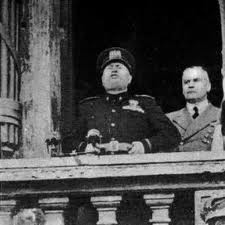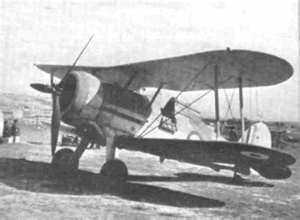 The Italians had been watching from the sidelines. Suddenly, 10 June 1940, Benito Mussolini announced, in a grandiose speech from his balcony over Palazzo Venezia, that they were joining in the war on Germany’s side.
The Italians had been watching from the sidelines. Suddenly, 10 June 1940, Benito Mussolini announced, in a grandiose speech from his balcony over Palazzo Venezia, that they were joining in the war on Germany’s side.
Good timing. France was on the verge of collapse. No one questioned whether the Germans would march into Paris—only how soon.
In Washington, Roosevelt risked alienating the Italian vote in the upcoming US election. “On this 10th day of June, 1940,” he said, speaking on the very night of Il Duce‘s declaration of war, “the hand that held the dagger has struck it into the back of its neighbour.”
For the beleaguered French army, there would be an additional frontier to defend along the south-western border with Italy. For the Royal Navy, there was the prospect of losing the Mediterranean—the supply route for the British army in Egypt, for Suez and the whole of the Middle East. India, even. (This thought had occurred to Hitler). The Italian battle fleet was modern. The Italian air force—the Regia Aeronautica—far outnumbered the pitiably few aircraft that the RAF could spare. Britain’s dwindling supply of Spitfires and Hurricanes was needed at home.
The British naval base on the tiny island of Malta dominated the shipping routes across the central Mediterranean and was to become one of the most bombed locales of World War II. The Regia Aeronautica launched the first of its massed air raids on 11 June, less than twenty-four hours after Il Duce‘s speech to the throngs in Rome.
 One of the enduring myths of the battle for Malta—in fact of the entire war—surrounded three RAF Gloster Sea Gladiator bi-planes, nicknamed Faith, Hope, and Charity, which flew up each day to do battle with scores of Italian (later German) fighter planes and bombers. Some say there were a few more than three of the obsolete Gladiators. Perhaps the RAF had a couple of modern Hurricanes at hand. Nonetheless, most agree that much of the legend is fact, and that it gave hope and faith to the Allied cause when there was precious little to be had.
One of the enduring myths of the battle for Malta—in fact of the entire war—surrounded three RAF Gloster Sea Gladiator bi-planes, nicknamed Faith, Hope, and Charity, which flew up each day to do battle with scores of Italian (later German) fighter planes and bombers. Some say there were a few more than three of the obsolete Gladiators. Perhaps the RAF had a couple of modern Hurricanes at hand. Nonetheless, most agree that much of the legend is fact, and that it gave hope and faith to the Allied cause when there was precious little to be had.
Charity became the next casualty of war that week. Churchill refused to send more fighter squadrons to assist the French. Roosevelt resisted French appeals for American intervention.
